Is Buying Organic Food Always Necessary?
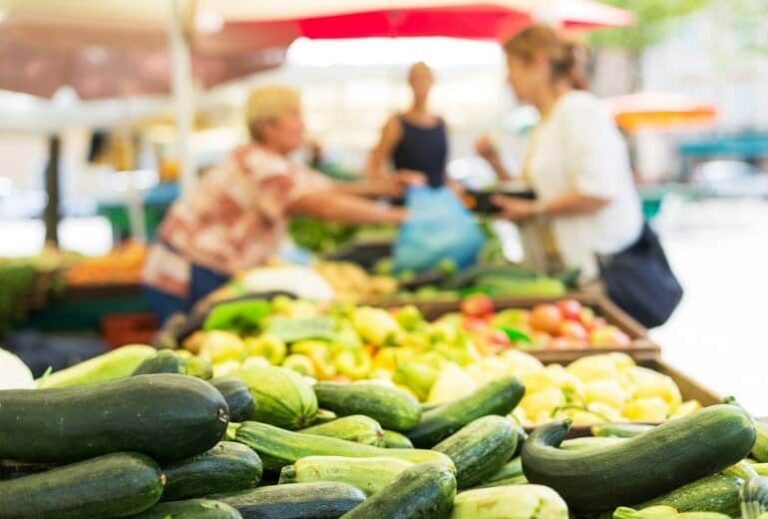
Think buying organic food is going to blow your budget?
Let’s set aside the argument that eating whole food pays back in higher energy and lowered disease risk and healthcare costs.
You’ve got a budget, and let’s face it, buying organic food will chip away at it more quickly than conventional food. Did you know you can prioritize which foods are MOST important to buy organic, and which are LEAST important?
In this article:
- The “Dirty Dozen” And Other Foods To ALWAYS Buy Organic
- More Foods to Put On Your ALWAYS ORGANIC List
- The “Clean 15” And Other Foods You DON’T Need To Buy Organic
The “Dirty Dozen” And Other Foods To ALWAYS Buy Organic
The “Dirty Dozen” is a list put out by the Environmental Working Group, ranking produce most contaminated by pesticide. It changes a little year to year, but the same culprits tend to show up time and time again:
- Strawberries
- Spinach
- Kale, collard, and mustard greens
- Peaches
- Pears
- Nectarines
- Apples
- Grapes
- Bell and hot peppers
- Blueberries
- Cherries
- Green beans
Those are no-brainers. Choose organic every time.
More Foods to Put On Your ALWAYS ORGANIC List
The Dirty Dozen isn’t the whole story, though, and pesticides aren’t the only culprit to watch out for. Here are some more foods I recommend buying organic.
- Leafy Greens: The demand for pre-washed, organic leafy greens has increased availability and pushed the organic price down; nowadays, the organic choice isn’t much higher than conventional. Besides, with greens being such a large percentage of a healthy whole-foods diet (what’s a green smoothie or salad without them?), you want the cleanest source possible.
- Coffee: Coffee is one of the most sprayed crops on the planet. With 12 billion pounds of coffee being produced each year, that’s a lot of herbicides, pesticides, and additives. Buying organic is better for you, AND for the environment.
- Eggs: The natural omega fatty acid balance is so disrupted in conventional eggs that it’s the reverse of what is healthy. It should be a 6:1 ratio Omega 3’s to Omega 6’s, but in conventional eggs, that ratio is flipped. Folks eating the Standard American Diet are already far out of balance. Choose organic eggs for a more natural ratio.
- Meat: If you’re going to eat meat, always choose clean, organic sources. Organic livestock is raised without antibiotics and steroids, and the animals have access to the outdoors. Their feed cannot contain animal by-products or GMO grains or be grown using non-organic fertilizers. Look for free-range poultry and grass-fed beef. Butcherbox offers clean and organic options.
- Dairy: If you can’t do without dairy products, make sure they’re organic, for the same reasons you want clean meats. The best organic dairy comes from grass-fed animals.
The “Clean 15” And Other Foods You DON’T Need To Buy Organic
The “Clean 15” is the other side of the Dirty Dozen coin. EWG says this produce is least likely to be contaminated with pesticide, and is generally ok to buy conventionally.
- Avocados
- Sweet corn
- Pineapple
- Onions
- Papaya
- Sweet peas (frozen)
- Asparagus
- Honeydew melon
- Kiwi
- Cabbage
- Mushrooms
- Mangoes
- Sweet potatoes
- Watermelon
- Carrots
I’ll add a few more grocery items to the list of non-organic foods to purchase:
- Other foods with thick skins or rinds that can be removed, like melons, citrus fruits, bananas (unless you want to add the peel to your green smoothies for gut-supporting benefits, and squashes.
- Quinoa, which usually isn't sprayed because the tough outer coating is already nearly impermeable to pests.
- Maple syrup, which is usually forest-harvested from untreated trees.
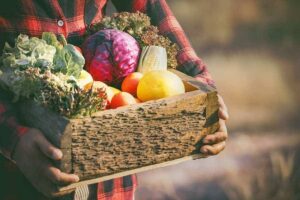
What about foods not on either list? Read labels and use good judgment. When in doubt, go organic when your budget allows (and maybe even grow some of your own veggies!).
Want the Dirty Dozen and Clean 15 lists handy when you're shopping at the grocery store? Grab my convenient Wallet Cards, for free!
Read Next: What Does ORGANIC Mean? Should I Pay More For It, Or Not?

Disclosure: This post may contain affiliate links that help support the GSG mission without costing you extra. I recommend only companies and products that I use myself.
Disclosure: This post may contain affiliate links that help support the GSG mission without costing you extra. I recommend only companies and products that I use myself.
Posted in: Preparedness, Videos


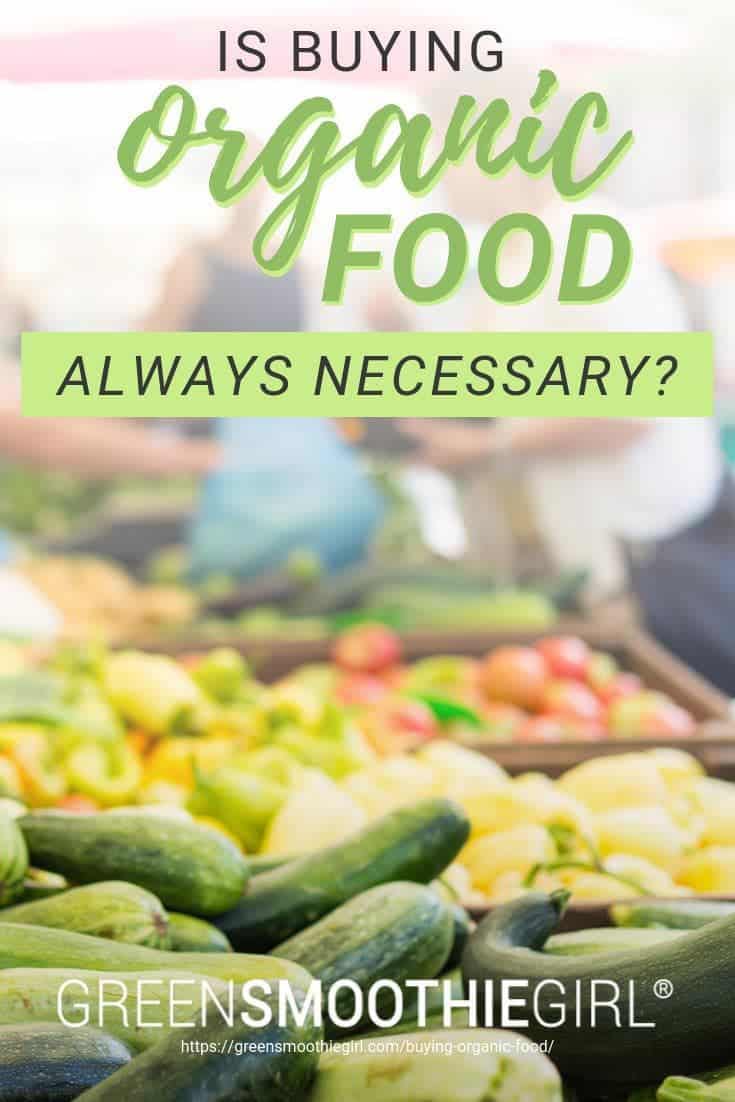





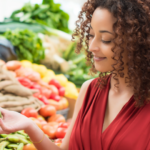



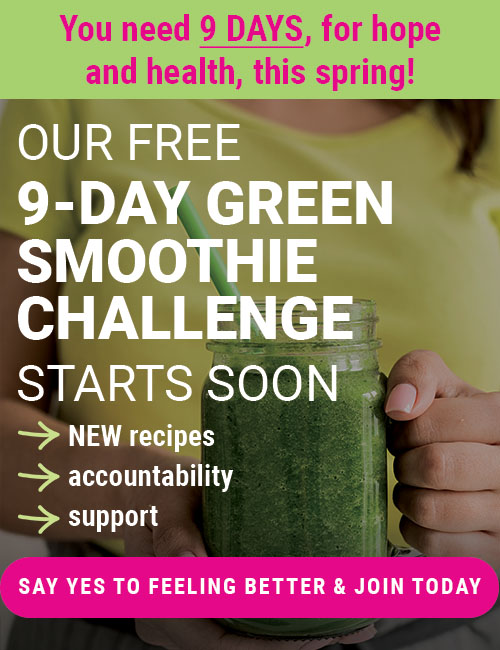
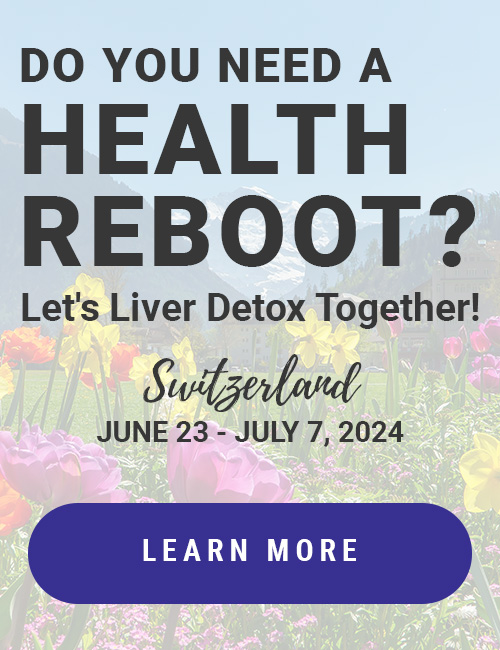
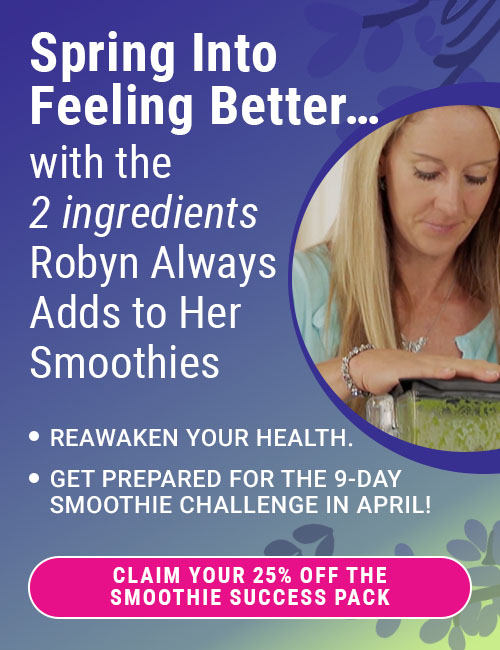
What about sweet potatoes? Are they in the “potato” category that is heavily sprayed? May be a dumb question, but I love sweet potatoes so I want to make sure. I have a pretty strict budget. Also, how do we know the grass they are using for grass-fed animals is not heavily sprayed and chemically fertilized? Does this not matter?
In the video she said that sweet potatoes are in the ‘okay to buy non-organic’ category.
Even with the Clean 15, there are still pesticides used, and this is damaging to the planet and other species, not just your health. If you are spending money on stuff you don’t need (cosmetics, household cleaners, furniture, clothes, shoes, facials, manicures, jewellry, crap, crap, and more crap), stop, and start spending your money on organic, ideally locally grown food. Everything else is secondary.
Great site Green Smoothie Girl!
Leslie, love your perspective!
I agree! Let’s not just think about what’s best for us but what’s also best for this planet we call home!
I agree with Mary — first things first, as in what is best for planet Earth, not just us.
This was an awesome with helpful content. I believe in professionals so this is a very useful article for everyone. Thank you very much for sharing..
Karl, thanks for your comments in return!
What about the wine industry ? Nobody ever taljs about that !!
I have found both organic wines and wines from organic grapes (not necessarily other ingredients)
in the US it is not required to put ingredients on labels. wine has dye to make it that beautiful color we like, sulfites and artificial yeasts. Of course there’s the pesticides on non organic grapes, etc. i cannot tolerate any US wine even the $100 bottle with all it’s aditives. i stick to the old vines like France, Italy, Argentina. Noooo Australian wine either.
Do the labels put on vegies have a code for non-GMOS such as the last didget?
Organic starts with 9 conventional starts with 4 and I think GMO starts with 8. Organic and GMO will have 5 numbers because they had the 9 or 8 before the other 4 numbers, hope that helps
I’ve heard that 9 at the beginning of the number means organic and 8 means GMO. Who knows anymore what is truth and what is fiction.
Nine is fine … four leave on the floor (GMO – I don’t know )
I have read that 5 digit starting with 9 is organic (but I have seen 4 digits with a label that says “organic”)
I have read that 5 digits starting with 8 is GMO, however, I recently read this article, too. https://www.huffingtonpost.com/jeffrey-smith/plu-codes-do-not-indicate_b_473088.html
In today’s busy era everyone prefer online shopping. Its has many benefits like time saving, quick and easy. We are able to find many products under one shopping website. Try to buy organic food from website that are near to your locality and offering fresh food items.
I’m a nurse and try to educate patients about GMO. Most people think it means they have crossed DNA of plants together and that makes them GMO. OVer 30 years ago corn was genetically modified. That means that the pesticide was placed in the DNA of the plant. People need to realize that they are eating the pesticide. Also plants that are GMO also have terminal seeds so you can’t save the seed from plants and replant the next year. My Dad was a farmer and many years ago explained to me what would eventually happen to our food supply. Also GMO crops are sprayed for weeds. They use a chemical called Dicamba. This chemical drifts onto non GMO crops and kills the non GMO crops or affects the crop by reducing the yield from that crop. This ultimately takes money out of the pockets of NON GMO Farmers. I encourage all to educate themselves on this subject regarding the crops. This ultimately affects us all.
Wow… I knew that our thoughts on GMO were wrong, but I had no idea the pesticide was put into the DNA of the corn! I have been trying to convince my family to go to on an organic/whole foods diet for a long time, maybe this will convince them!! Thank u so much!!
Don’t you think that cleaning and boosting and sealing it is the most important first objective so you your gut your immune system can take care of itself. Yes you have wonderful ideas and real food start but why would you always want or desire for a powdered drink . Eggs mind you are the healthiest protein , your body with proper starting point of your gut and urging out the garbage that western civilization has dogmented into our brains so that we continue this circle and really never have our selves to take care of ourselves not pharmaceuticals gaining money from our ockets . Hey but you’ve lost weight and your family is doing great hey great job really it’s hard work. But how long will this actually last because where did you start .
Hi Avena, We teach and promote raw/live whole foods all the way. I also teach that if you choose to eat animal protein, my first choice would be organic, free range eggs which are excellent source of Omega 3s as opposed to conventional eggs which are heavy in Omega 6s. I healed myself of 21 different diseases, lost 70 lbs as a direct result of eating whole foods and my children are healthy because I fed them whole foods. Since I’ve been going strong for 25 years now, I anticipate many more healthy years ahead! I hope this has helped to answer your questions. 🙂
You go girl!
I have read that an 8 in front of the code means the food has been irradiated, which if true, IMO is not good.
What about nuts? Especially almonds, as I go through a lot making almond milk.
Claire, almonds are a big deal to us at GSG and the very reason we promote a group buy once a year to get unpasteurized almonds at the best price from a farmer in California. Ours just ended last night at midnight, but be thinking about this for yourself next year and jump in!
Good information, however Organic also means organic seeds, not just spraying….so the clean 15 aren’t really clean. If the seeds aren’t organic and the fertilizer used is not organic, then don’t eat it or be aware of what you are eating.
What do you think of cheese from New Zealsnd or of other ( non American) imported cheeses? I think they are safe. Most countries other than the US don’t allow GMO foods.
Right – well, if you’re okay with dairy and it’s all grass fed, non GMO, organic then I’d say you’re pretty safe.
you should check out this company
http://www.uswellnessmeats.com
they also are humane in their slaughter practices.
Almond milk or cocunut milk ok?
I see no organic brands were I’m from.
Its very easy to make your own. The only appliance you need is a blender. YouTube has many tutorials. I make my own, this way I’m sure whats in it.
One other thing… is it more important
to watch your kids sugar or give them
organic?
With the recent guidelines it’s a fantasy.
They are very active though.